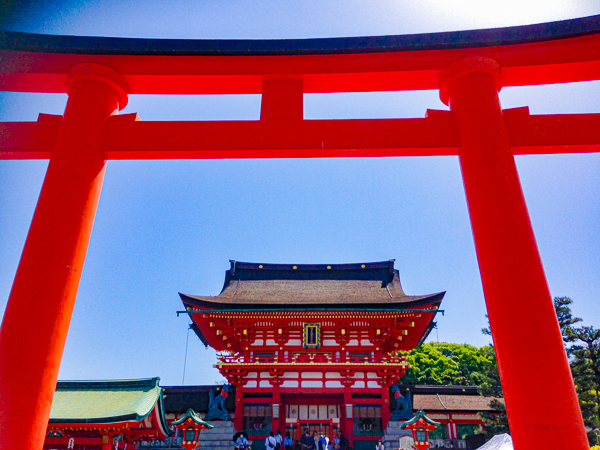
This post may contain affiliate links. If you make a purchase through one of these links we may earn a small commission at no additional cost to you.
As you are planning your dream trip to Japan, it’s easy to get caught up in picking out the destinations, accommodations and restaurants. There’s so much to see, to experience and to eat! Who wouldn’t want to spend all of their time mapping out the entire itinerary for a spectacular vacation!
But sometimes, the devil’s in the details.
There are basic planning tips can help make your trip to Japan even more enjoyable. These are simple yet frequently made mistakes by travelers to Japan that can be easily avoided. Keep in mind these top 10 mistakes to avoid when planning a trip to Japan:
1. Avoid the busiest travel dates in Japan
While there is no wrong time of the year to visit Japan, when you plan your trip to Japan, try avoiding the busiest times of the year. These are national holidays in Japan which means that you will be competing not only with travelers from all over the world but you will be competing with the locals to get the accommodations, transportation and entrances into tourist spots.
Japan Travel Dates to Avoid:
Here are the two times of the year that you would want to avoid traveling to Japan, if possible. Everything will be crowded, if you can even get to some destinations at all with many accommodations and transportation tickets being sold out. If you cannot avoid these dates, just plan on making all your reservation way in advance.
- Golden Week – A national holiday that spans the days surrounding April 29 to May 5 of each year. This is perhaps one of the, if not THE, heaviest time of the year to travel for the Japanese people both internationally and domestically.
- Obon – This festival commemorating ancestors is observed in mid-August (dates slightly vary each year). Many Japanese people visit their hometowns during this period, causing heavy traffic domestically especially going in and out of larger cities.
Also, know the following slight inconveniences that you may need to face depending on when you visit and plan accordingly:
- Cherry blossom season is extremely busy in general because of the world-renown magnificent views throughout Japan. It is especially crowded in major parks and castles where the cherry trees are densely clustered. Cherry blossom season varies quite a bit year to year and by location. Check this site for the annual forecast of when they expect the season to start in each area.
- May/June and sometimes into early July is the rainy season in Japan.
- Summer in Japan is humid, maybe the exception being the northern Japan. Moisture wicking clothing might be ideal.
- Mosquitoes are bad in Japan in the summer. Pack a bug repellent!
- Many stores, restaurants and tourist attractions are closed on New Year’s Eve and New Years Day.
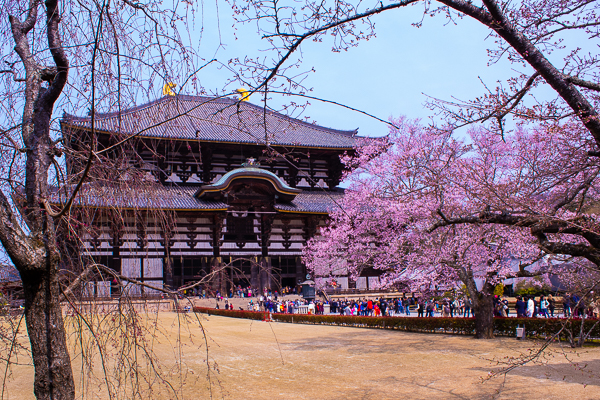
2. Don’t Overpack
This happens to so many travelers to Japan. I always overpack thinking that I am going to need those cute sandals or a dress or three to go out lookin’ fancy for a few nights. That. Almost. Never. Happens. If you need to travel through Japan with your luggage, having large suitcases to lug around on public transportation is a total hassle.
Unless you have specific occasion that calls for a nicer attire, pack comfortable shoes and clothes that are easy to wash. Most restaurants are casual enough that you don’t have to change into nice clothes and shoes to go in. And most hotels will have laundromats available so that you can wash and re-wear your clothes.
One quick thing to note is that the dryers in Japan tend to be not all that powerful. Drying underwear should be fine. But it may take a few cycles or need extra time to air-dry heavier clothes like jeans.
Related article: See the essential items that you should pack when you are planning a trip to Japan.
3. Don’t be afraid of the language barrier
Getting around in Japan is relatively easy: Many signs and instructions in major cities are in English. But most Japanese people whose job isn’t to interface foreign travelers on the daily basis will not understand English. Hotel front desk staff and some of the train station staff in the major cities may be best equipped to handle most frequently asked questions in English.
While you cannot expect everyone to speak English, Japan is known for the kindness and hospitality of its people. If you are lost, if you are confused, if you need help, you can expect the Japanese people to come through, somehow. There are countless examples of foreign travelers who are lost and the Japanese locals, who do not speak a lick of English, go out of the way and lead them to the destination.
Just be prepared by downloading a translator app, like Google Translator, on your phone. Also, download the list of helpful basic Japanese words you should know.
4. Don’t go cashless
You will need cash in Japan. And they only accept Japanese Yen. Many small businesses and restaurants still do not accept credit cards — even in some of the major tourist hot spots.
There was a sake shop in Kyoto that offered various sake flights (you can taste test 4-5 different kinds). We really enjoyed that experience, but we would have had to skip the place if we weren’t carrying any cash since they did not accept credit card. Avoid having to miss something or having to ask if they take credit cards at every store by always carrying some Japanese Yen. As you are planning your trip to Japan, check with your local bank branch to see if and how soon they can order Japanese Yen for you. They typically offer the lowest fees, if any at all, and the best exchange rates.
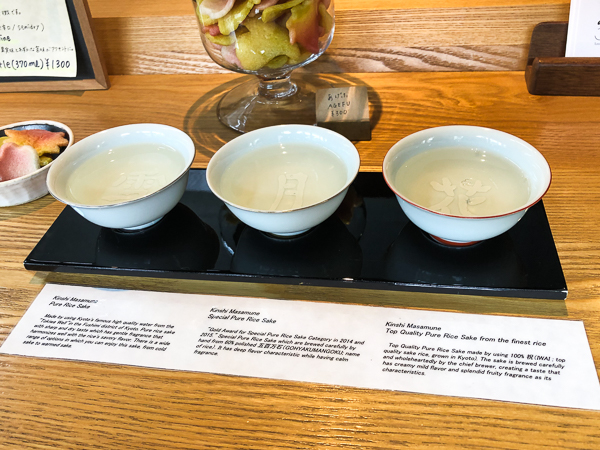
5. Don’t plan to eat out every night
As tempting as it is to go out and avoid the FOMO of trying yet another fantastic restaurant, change it up a bit and go pick up some prepared meal options at the local grocery store, or a nearby Seven-Eleven or Lawsons (Yes, you heard me right: Seven-Eleven and Lawsons!) for dinner. Your wallet will thank you and you will NOT be disappointed! Their prepared food options are vast and really, pretty good.
If you go too close to the dinner time, the selections may be slim pickings because the Japanese commuters will pick up food for dinner on their way home, too. But you do get a nice end-of-the-day discount on those prepared food items if you do go late. Go in the late afternoon or early evening (before the rush hour starts) and grab various food items and beverages, like canned chu-hai. And enjoy your meal at the local park or back in your hotel room.
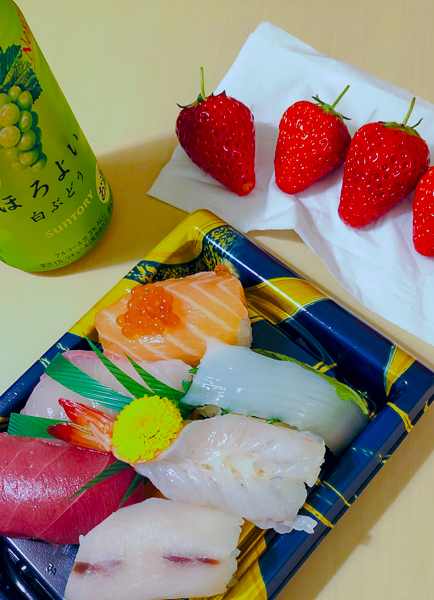
6. Don’t stick only to main tourist attractions
If you are looking at your itinerary (if you have one set) and only see Tokyo! Kyoto! Osaka! Nara! Hiroshima! Miyajima! Mt. Fuji! guess what, so do the majority of the tourists coming from all over the world. As matter of fact, many of those places have become unbearably crowded with tourists.
Ask the hotel staff for the best local parks in the area or the nearest hiking trails. Ask where are their favorite local places to visit on weekends. You can also consider taking some guided bus tours or walking tours that might take you to places that are lesser known or even off the beaten path!
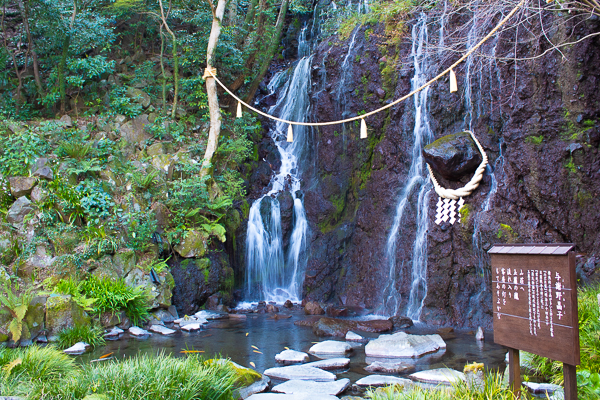
7. Do plan to get up early and explore
I get it. You are on your vacation. Or you are jet lagged, or you are not a morning person. Or whatever… You want to sleep in. But if you sleep in while you are in Japan, you are missing out some of the best times to explore around town. Especially if you plan on going to some of the key tourist attractions, your best and only bet to enjoy the experience and take some great pictures may be to go first thing in the morning or later in the evening.
Just note that most of stores and restaurants do not open until later in the morning – around 9 a.m. or even 10 a.m. So, if you know you want breakfast while you walk around early in the morning, you may want to pick up some the night before or stake out some places in advance to find the places that open early. Stores around major train stations are a good bet.
8. Don’t stress over missing a train…
Or, getting on the wrong train, or getting off the wrong station. Until you get a hang of it, it’s bound to happen at least once. But don’t panic. For many instances, the next train is right around the corner.
If you are on a train and realize that you are going the wrong direction, get off at a next relatively busy station. Don’t get off at a station that is near empty. Chances are, it’s a train station that express trains will skip or there is no train expected to arrive anytime soon, which could mean that you may be stranded there for a bit. But even then, the next train will eventually come. Unless…you happen to miss the last train for the night. Then you may want to start thinking of Plan B, which will most likely entail catching a cab, which can be expensive.
Here are some tips to minimize the stress of traveling via train in Japan:
- Download an app that includes maps and train schedules such as Japan Travel or Japan Official Travel App.
- Make sure you have access to the Internet at all times using a portable WiFi or a SIM card.
- Consider purchasing a Japan Rail Pass for longer trips so that these missed trains do not become costly mistakes.
Related topic: See if getting a Japan Rail Pass makes sense for you and learn how to use it like a pro!
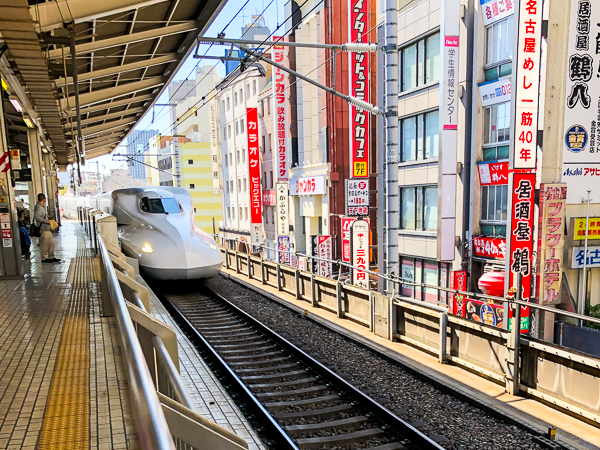
9. Don’t underestimate the power of Omiyage
What’s an omiyage (pronounced oh-mee-ya-geh)? Souvenirs! Japan is the land of souvenirs. Not just the cheap tchotchkes either. There are boxed sweets that are gorgeously wrapped or ingenious items that you never thought you needed until you see them! Every region will have its own unique set of souvenirs that as you travel, and you’ll have the urge to go through the shops with the fresh eye each time. Kit Kats, for example, get so many people hooked.
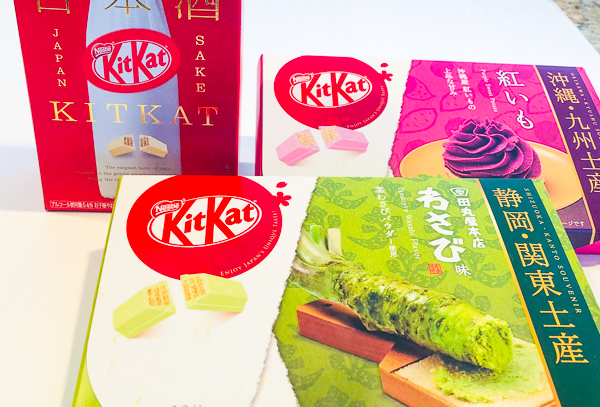
Kit Kats, you say? Yes, there are probably 30+ various Kit Kat flavors available at any given time in Japan. (Supposedly over 300 flavors produced to date!) All the various flavors are strewn strategically across Japan so that at every major train stop, you will be looking through the souvenir shop to see what unique flavors they have. Some flavors are only available at the airports, so you’ll contemplate throwing your clothes out on your way home to make some room for the one last flavor that you missed!
Plan for an adequate space in your luggage for souvenirs. Or take an extra empty duffel bag or a suitcase that you can fill with these extra omiyage that you did not plan to purchase but most definitely will!
10. Do become familiar with the etiquette rules
Every culture has its own set of unwritten social rules. There are certain public behaviors that are looked down upon in Japan. Some of these you may not even realize that they are offensive because they are so specific to Japan. As you are planning your trip to Japan, read this list to make sure you are familiar with them!
Pin it for later!
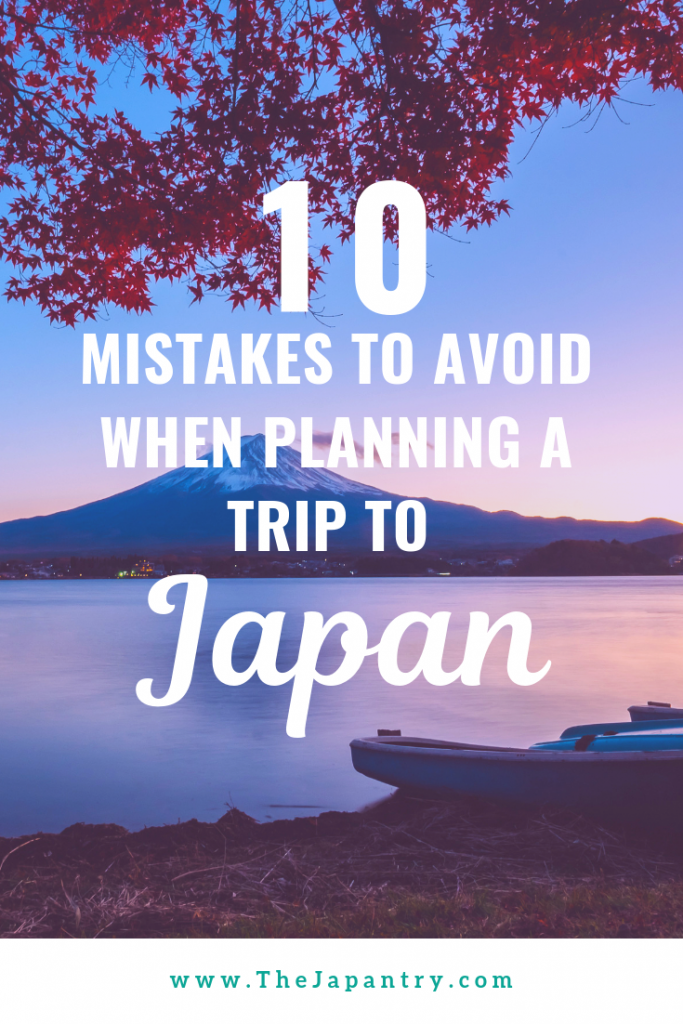
Related Posts
Money Saving Travel Tips for Japan
One of the main reasons why Japan is on so many people’s bucket list…
May 14, 2020Top 10 things you must experience in Japan
If you are planning your very first trip to Japan, there are top 10 things…
May 6, 2020


Leave A Comment